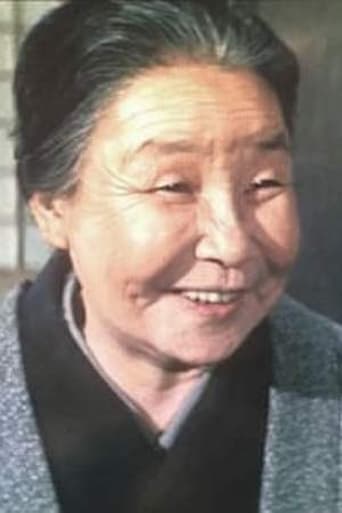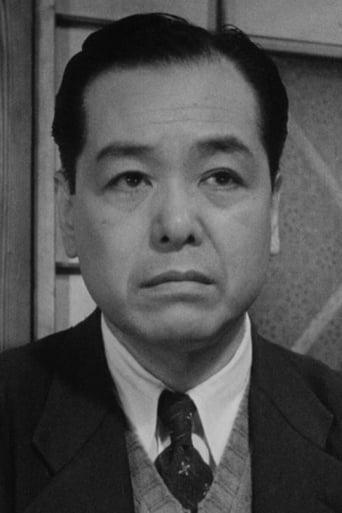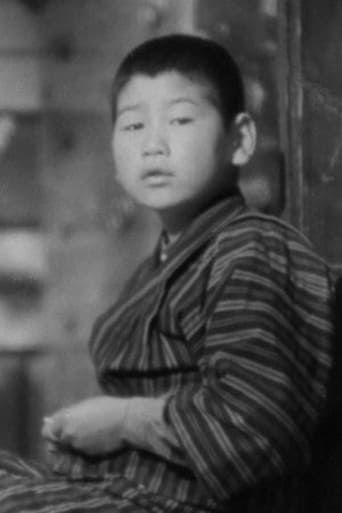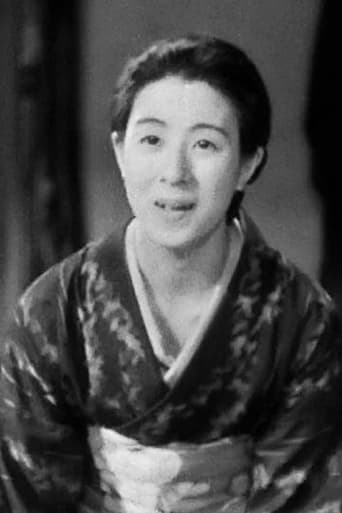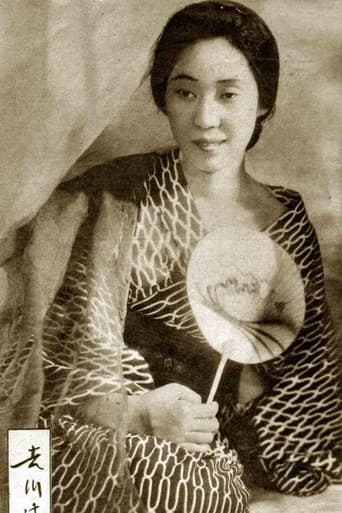Nonureva
Really Surprised!
Pluskylang
Great Film overall
Rio Hayward
All of these films share one commonality, that being a kind of emotional center that humanizes a cast of monsters.
Fleur
Actress is magnificent and exudes a hypnotic screen presence in this affecting drama.
bobsgrock
While having the privileged importance of being great director Yasujiro Ozu's first sound film, The Only Son also remains important for its emergence as the first truly "Ozu" work, in the sense that the very particular cinematic and thematic elements which make up what he is best known for coalesce together in a thoroughly emotional experience.The story is simple enough, as Ozu usually tells. A widow attempts to save enough money for her son to go to college in Tokyo. She visits him years later, only to discover that he is not living the kind of sophisticated, well-off life she believed he would lead as a result of a college degree. What Ozu does with these characters is astonishing; he shows them in the most serene and simple of situations and settings yet uses his unique directing style to elicit subtle feelings and thoughts simmering just below the surface. What this seems to suggest is Ozu's feelings regarding Japan in the 1930s, a tumultuous period in which the age of modernization seemed to be waning and Japanese society continued to be pressured into a militaristic hegemony. Clearly, Ozu resisted these transitions and his best offense was the films he made. The result is a quiet, gentle yet intense story about simple people wishing their lives, or the lives of their children, were better than they are. Through this, Ozu seems to reflect on the failure of Japanese innovation up to that point and the uncertainty of what the future might bring. Fortunately for the viewer, his specific style and insight remain as coherent and profound as ever.
MartinHafer
This is another interesting film from the Japanese director Yasujirô Ozu. While he was extremely masterful at telling stories about ordinary people--often in a conflict between the modern and traditional worlds. Many consider him to be an extraordinary genius, though I also felt that perhaps he was locked into an inflexible pattern that persisted through his film. The Ozu style meant a camera that did not budge and was usually set near floor level. This means that when the characters moved, the camera cut to a new frame--it did not follow them. And, the stories, though marvelous, were very, very similar. In fact, I would say that Ozu's films are the most consistent in theme and style of any director I can think of--and I've reviewed a ton of films. Because of this, the movies often tend to blend together in your mind. In light of all this, I liked "The Only Son" because it was a bit different. While its style and camera-work were pure Ozu, the story was a bit different. Most of his stories seemed to either be about the elderly and alienation or about marriage, this one is a bit different--though it's still a very personal story of ordinary folks.The film begins in rural Japan. A young boy desperately wants to continue his education beyond primary school, but his mother is a poor widow. Yet, she is determined to work her butt off and send him to a good school in Tokyo--thereby guarateeing him a great future.Years pass. The boy is now a man with a wife and baby. He is a school teacher and is quite embarrassed when his mother comes to the big city to see him after many years. Why is he embarrassed? He thinks that his job as a teacher is lowly and he should have achieved more with his life. Whether or not his mother agrees with this is never 100% certain--but what eventually does become certain is that she does not respect him because he sees himself as a failure and is too accepting of this. What happens next provides a nice look into what it really means to be a success.Overall, an exceptionally good Ozu film. It's a bit different in tone than his later films of the 50s and early 60s and makes for nice viewing--even if you feel you've seen too many similar Ozu films. Well worth seeing--with the typical fine acting and direction you'd expect. The only serious negative, and you cannot blame the filmmakers for this, is that the print is pretty bad starting about one hour into the movie.
soren19b
It is a shame that this film is not available for wider viewing. I had the opportunity of seeing it at an Ozu retrospective in Cleveland. This film measures up to the other great classic Ozu films. The impact of Ozu's films works in much the same way as Japanese painting. There is great power in its open spaces and silences. They lend greater power to the words and emotions that are expressed. The dignity of the characters as they struggle with life is moving. Ozu is a masterof world cinema because he deals with themes of universal import and he does so with impeccable style. Especially noteworthy in this film is his effective use of music and sound. All in all, a very worthwhile experience
Michael Kerpan (kerpan)
This film starkly depicts both rural and urban poverty in depression-era Japan. It examines the impact that the national delusion that "education will allow everyone to get ahead" had on the lives of ordinary people. He shows that, in reality, people found that getting an education got them "nowhere". The film does not deal with abstractions, but real people, who face individualized dilemmas. The performances are exceptional, especially that of Choko Iida -- as a mother who gives up everything to let her only son pursue higher education -- only to find that her son is mired in near-poverty, instead of being a big success in Tokyo.
